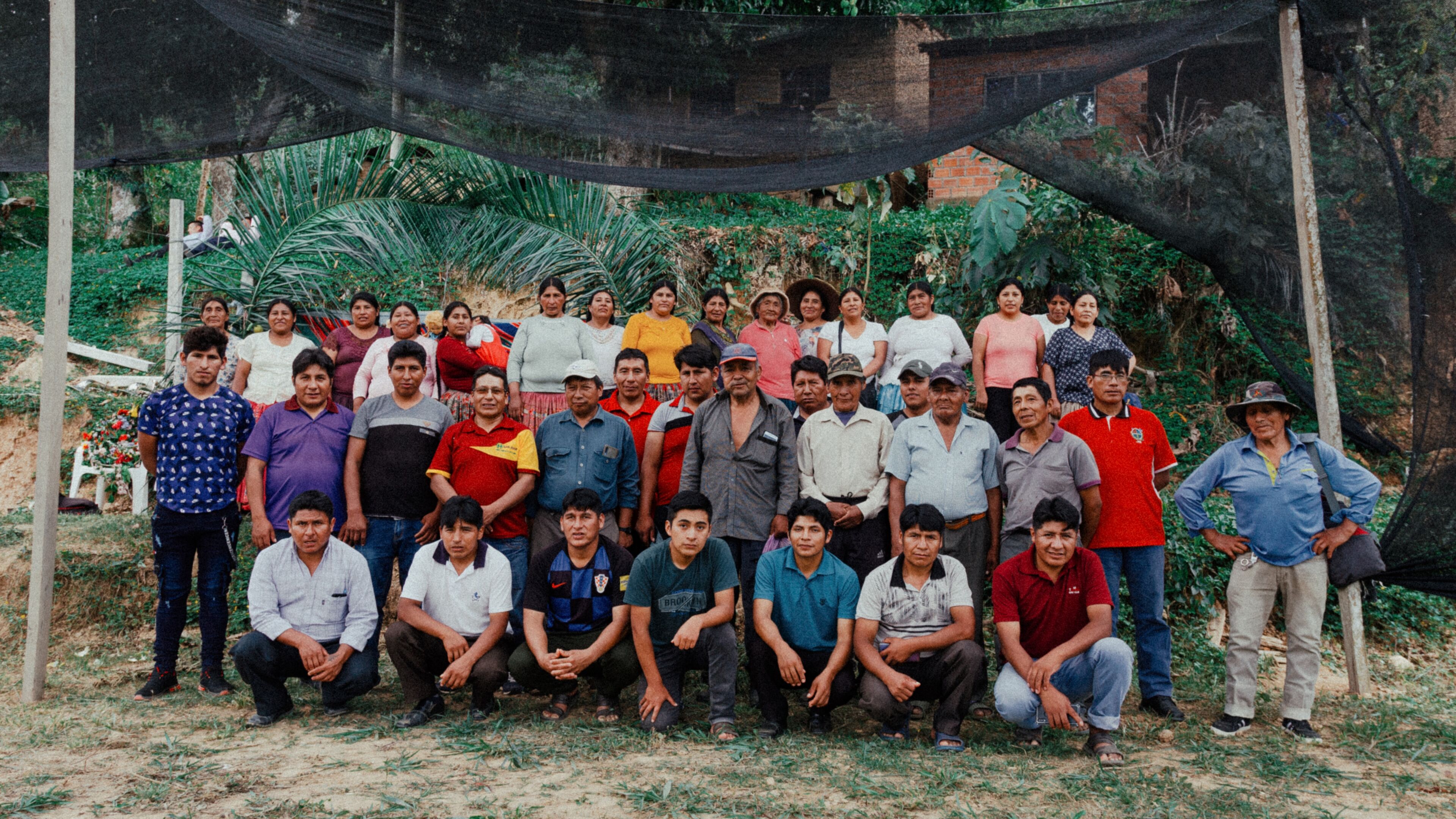In search of each Terroir’s potential, Felix seeks excellent coffees but above all, he explores Human potentials.
AYMARA
Bolivia - La Paz - Yungas - AYMARA - Grade 1 - Natural - Organic
Pick your crop :
Aromatic notes:
Spot price
€/kg
Support the AYMARA project to maintain an organic and also sustainable agriculture
To defend a less destructive model of agriculture, we have written a specifications book for all our Bolivian coffees. These precise specifications have the aim to incentivize more sustainable practices and reforestation within the organic certification.
Felix is a young Bolivian entrepreneur. With a background in mechanics, his love for coffee brought him back to this world. Son of a coffee producer, he has been our field man in Yungas for the past 4 year. Working closely to farmers, he works in favor of a richer biodiversity in coffee farms implementing, more shade. Producers that have chosen to go beyond what is expected by the organic standards.
Marketing tools & Certifications
POS displays, postcards, QR codes for packaging, ...
- Bolivia
Origin
Region
La Paz Terroir
Yungas Species
Arabica Process
Natural
Drying
Drying beds
Packaging
60kg - Jute bags
Altitude
1500 - 1600 Harvest period
June - September Type of harvest
Manual
The region La Paz
Coffee production in Bolivia is concentrated in the La Paz region, which accounts for 91% of the total. The predominant model is organic family farming, with farms averaging 2 to 3 hectares. Between 1990 and 2017, production fell from 156,000 to 31,000 60kg bags, but yields also fell, from 15 to just 5 bags per hectare. The community of Caranavi, in the La Paz region, is considered the coffee capital of Bolivia. However, as coffee is not the national drink, much remains to be done to improve the development of coffee production and processing in Bolivia. Nevertheless, the Bolivian coffee sector offers interesting development potential if it receives the necessary investment and support.
The Bolivian Coffee Exporters' Federation (FECAFEB) is an autonomous national non-profit organisation created on 15 May 1991. Its mission is to support the associations and cooperatives that represent the majority of producers, as well as small, medium and large companies involved in the collection, processing and marketing of coffee. As an organisation specialising in production management, technical assistance and marketing in the coffee sector, FECAFEB is based on economic and social principles. It brings together 42 producer organisations in the form of cooperatives or associations in different departments of Bolivia, such as La Paz, Santa Cruz and Cochabamba.
Analyzed to the nearest gram
Find detailed physical and sensory analyzes of your coffee in the quality sheet with:
- Density
- The humidity level
- Water activity
- Colorimetry
- The sieve
- The nature of the defects
- The score and its details
- The aromatic profile (downloadable)

Project Aymara - Bolivia
For sustainable coffee production in the Yungas forests
Together, LATA 16, Cooperativa San Juan, CooperativaAljiri and Belco contributed part of the export funds to hire agronomic experts to produce 4,000 seedlings to reforest the area of the initiative's member producers in this region.
Equipments selection
Unit price
€ ex.tax/U
From xx products
€ ex.tax/U
Unit price
€ ex.tax/U
From xx products
€ ex.tax/U
Unit price
€ ex.tax/U
From xx products
€ ex.tax/U
Unit price
€ ex.tax/U
From xx products
€ ex.tax/U
Unit price
€ ex.tax/U
From xx products
€ ex.tax/U
Unit price
€ ex.tax/U
From xx products
€ ex.tax/U
Unit price
€ ex.tax/U
From xx products
€ ex.tax/U
